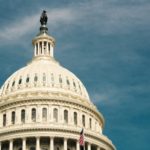
[Update 09/13/22: The US Embassy in Monrovia is now formally denying having sent a diplomatic note to Liberia’s Ministry of Foreign Affairs requesting a sample voter registration card, according to a GNN Liberia report. But in so doing, a tone of concern rings through, with the US Embassy stating, “We urge the PPCC to fulfill its mandate of ensuring integrity and transparency in the procurement process so that the Liberian public gets full value for money in the use of public funds.”]
Liberia’s effort to establish a biometric voter registration program may become a locus for the US-China rivalry, thanks to seemingly improper dealings between Nigeria’s National Elections Commission and a China-based vendor, which appear to have sidelined a major US vendor.
The alleged dealings came to light via FrontPageAfrica, which discovered that the Chinese firm EKEMP listed the National Elections Commission as a client on its website. The problem is that a contact had not yet been publicly announced, nor had a deal with EKEMP in particular been approved by Liberia’s Public Procurement Concession Commission (PPCC). Other companies vying for the contract included HID Global, Waymark Infotech, and Laxton, among others.
Citing sources familiar with the National Elections Commission’s deliberations, FrontPageAfrica says that HID Global pitched tablets and fingerprint scanners that met the specifications of the tender, whereas EKEMP did not provide security features that were mandated. The publication suggests that certain stakeholders on Liberia’s National Elections Commission had already established an agreement with EKEMP before vetting of the proposals was complete.
Liberian officials have been planning the transition to a biometric voter registration system ahead of the upcoming General Election of 2023. Last year, a delegation was sent to Nigeria to consult with that country’s Independent National Electoral Commission about how it might proceed – Nigeria has proven to be a hotbed of biometric adoption among government agencies – and Liberia’s National Elections Commission recently confirmed plans to begin collecting voters’ face and fingerprint biometrics in mid-December.
It isn’t clear what kind of relationship, if any, National Elections Commission officials had with EKEMP during the planning process for the voter registration program. But the fact that EKEMP is a China-based company may offer a clue. Liberia joined China’s ‘Belt and Road’ initiative after a meeting between President George Manneh Weah and Xi Jinping in 2018. Broadly speaking, Belt and Road is an effort on China’s part to establish strategic investment partnerships, usually focused on infrastructure, across the developing world.
In officially announcing the partnership, China’s embassy in Liberia asserted that the two governments would “work together to enhance political relations, economic ties, security cooperation and people-to-people exchanges”, among other goals.
Nigeria, to which Liberia had turned for advice about setting up a biometric voter registration program, had also joined the Belt and Road Initiative, in 2019.
Whatever the global political backdrop may be regarding Liberia’s alleged dealings with EKEMP, Washington is now paying attention. Through USAID, America supports Liberia’s elections body, and as such the American government has an interest in ensuring that its activities are on the level; at the very least, policymakers will want to ensure that American aid is not merely subsidizing relations between its client and its biggest rival. So the Embassy of the United States of America has sent a diplomatic note to Ministry of Foreign Affairs asking the National Elections Commission to provide it with an example of the election identification cards that it plans to use for next year’s General Election.
That request has now been passed along to the National Elections Commission, asking for a response “in a timely manner.” Meanwhile, the National Elections Commission has reportedly asked the Public Procurement and Concession Commission to confirm its selection of EKEMP as the government’s vendor for the voter registration system, according to the Daily Observer. That suggests the National Elections Commission is pushing ahead despite any increase in political tension around the project, or perhaps racing ahead and seal the deal before the pressure becomes too great.
The PPCC is expected to respond to the National Elections Commission’s request this week.
Sources: FrontPageAfrica, Daily Observer, The Washington Post, Embassy of the People’s Republic of China in the Republic of Liberia
–
September 12, 2022 – by Alex Perala








Follow Us